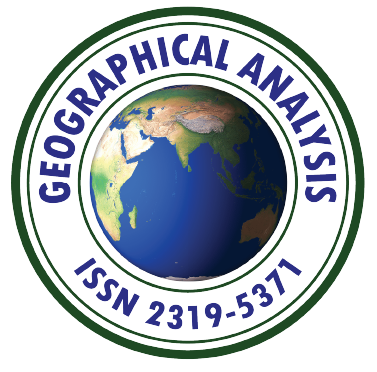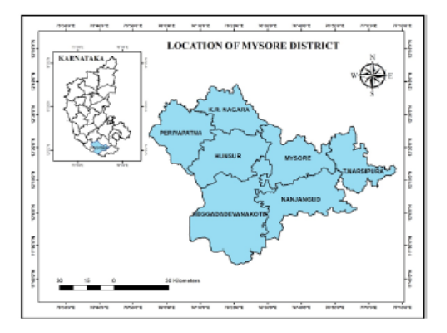
Geographical analysis
Department of Geography & GIS

Department of Geography & GIS

Geographical analysis
Year: 2021, Volume: 10, Issue: 2, Pages: 7-11
Original Article
V Minutha1*, P Jayashree2
1UGC PostDoctoral Fellow, Department of Studies in Geography, University of Mysore, Mysuru, 570006
2Professor, Department of Studies in Geography, University of Mysore, Mysuru, 570006
*Corresponding Author
Email: [email protected]
Received Date:02 February 2021, Accepted Date:22 May 2021
Literacy has been considered as one of the prime determinants of socio-economic development. In this context, education has become an important gateway for upgrading the socio-economic status of the people of a region. From a geographical point of view, literacy rate varies from region to region and with the passage of time and also it assumes Spatio-temporal characteristics. Indian Literacy is characterized with sharp differences in between the male and female, rural and urban areas and various population subgroups. In this paper an attempt has been made to study the Spatio-temporal trend in literacy rates at taluk wise of Mysore District. The present study is based on Secondary source data; it has been collected from District Census Handbook of Mysore District. The comparisons are summarized here for two period’s i.e. 2001 and 2011. The collected information has been compiled and put in the form of maps, graphs and tables for further analysis. Maps are prepared using GIS software techniques. Data is analyzed through simple quantitative techniques like percentage. It has been observed that, in all taluks of Mysore district experiences greater regional disparities in the literacy. We found that literacy rate in study area was 63.50% in 2001 which is increased to 72.79% in 2011. No doubt the percentage of regional and gender gap across the taluks over the period 2001-2011 has reduced, but the percentage of reduction is lesser. And also found that the urban literacy is significantly greater than the rural literacy which is coexisting to the wider gender disparities from the rural to the urban population.
Keywords: GIS; Disparities; Literacy rate; SocioEconomic development
© 2021 Minutha & Jayashree. This is an open-access article distributed under the terms of the Creative Commons Attribution License, which permits unrestricted use, distribution, and reproduction in any medium, provided the original author and source are credited.
Published By Bangalore University, Bengaluru, Karnataka
Subscribe now for latest articles and news.